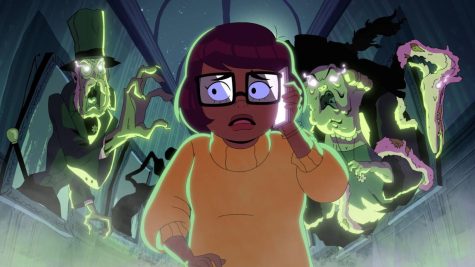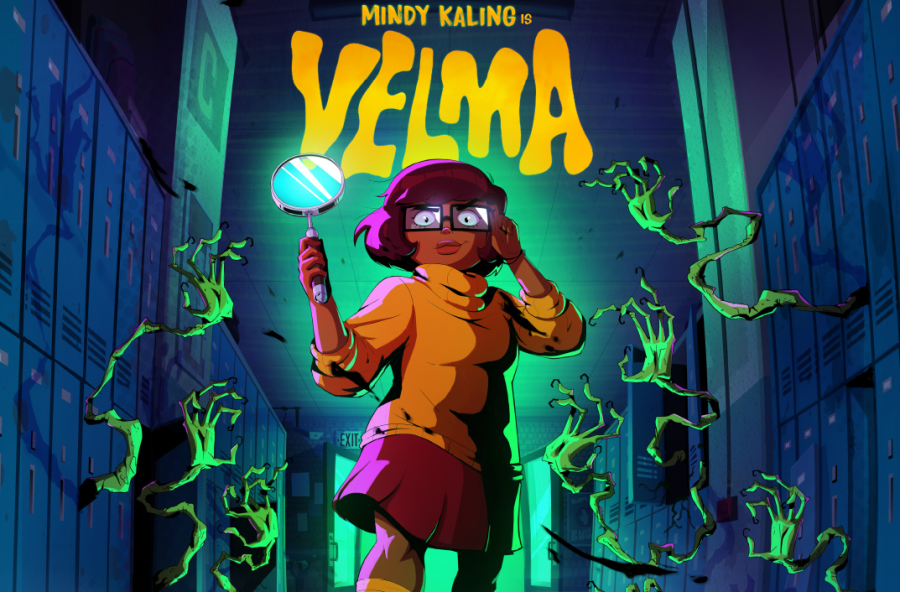“Velma” downward spiral
February 28, 2023
“Velma” is a recently debuted adult animated show on HBO Max that was released on Jan. 12. It’s categorized as an animated comedy horror show with mystery and thrill. The show follows an alternate reality version of Velma Dinkley, a famous fictional character that first appeared in 1969 on “Scooby-Doo, Where Are You!” from the Scooby-Doo franchise.
In this alternate reality, Velma is a nerdy and sarcastic South Asian teenage girl who tries to solve the mystery of her mother’s disappearance while simultaneously solving the murders of multiple teenage girls in her town. People anticipated the show’s release, excited to see what a new rendition of Velma’s character would be, along with her being the main character and serving as representation for the South Asian community.
With the release of the show, thousands have reviewed and discussed it, and the vast majority of reviews are not positive. It is rated 41% on Rotten Tomatoes, (a film and television review site) and 1.4/10 on IMDb (the same type of review site), becoming the lowest rated animated series in IMDb history. Viewers became increasingly disappointed with its results. Senior Emma Rey tells why she believes the show was so negatively reviewed.
“I think the Velma show is so hated because they got rid of what made people love the Mystery Gang. From loveable teens that went to solve mysteries with their talking dog (Scooby) that everyone loved so much, to one day get rid of them for personalities that are hated and annoying…they ended up producing a lame show with so much wasted potential” said Rey.
Viewers greatly disliked Velma’s new personality, which greatly effects the show because she’s the main character.
“It was always super hard to like Velma because she came off as a pathetic woke girl who thinks she’s smart and right all the time and not caring about others unless it had to involve them helping her find her missing mom,” Rey said.
One aspect of the show that viewers found issues with is the use of repeated and overused race and gender jokes. South Asians felt disappointed with the representation “Velma” delivered, believing that Velma’s jokes were pushing South Asians into more of a stereotype than progressing beyond them, especially being a South Asian girl.
Velma’s voice actor Mindy Kaling stated on “Late Night with Seth Meyers “how people couldn’t imagine a really smart, nerdy girl, with terrible eyesight who loved to solve mysteries could not be Indian.” AVID and math teacher Sifat Khan discussed how she felt about that stereotype being placed.
“She’s basically stereotyping and saying Indians are nerdy and geeky… as a South Asian woman, that’s wrong. I think that’s wrong in so many ways, because you are creating this image in people’s minds. It’s like saying, ‘Oh you’re Asian, so you must be rich’ like that’s a stereotype that people have. ‘Oh you’re Indian, you must be driving this type of car’” said Khan.
“Yes, a lot of them (Indians) might look like that but it doesn’t mean that you could stereotype female Indians like that.. A really smart nerdy girl with terrible eyesight could also be non-Indian too,

” said Khan.
Certain jokes in the show have also greatly upsetted audiences. Supporting character, Fred Jones makes a comment about Sickle Cell Disease saying “I have a disease where I can’t recognize people who aren’t hot. My doctor says it’s basically sickle cell for rich guys”.
Centers for Disease Control and Prevention (CDC) states that sickle cell disease is a group of inherited red blood cell disorders. Red blood cells contain hemoglobin, a protein that carries oxygen. Healthy red blood cells are round, and they move through small blood vessels to carry oxygen to all parts of the body. Some symptoms of this disease include frequent infections, swelling at the hands and feet, vision issues, episodes of pain, and anemia.
This caught the attention and angered those who have sickle cell disease, talking about how insensitive and disrespectful it is to make a joke of it. The Foundation for Sickle Cell Disease Research (FSCDR) came out with a statement about the joke used in Velma, condemning the joke and overall message, calling the messaging “insensitive” in a statement on their Twitter.


